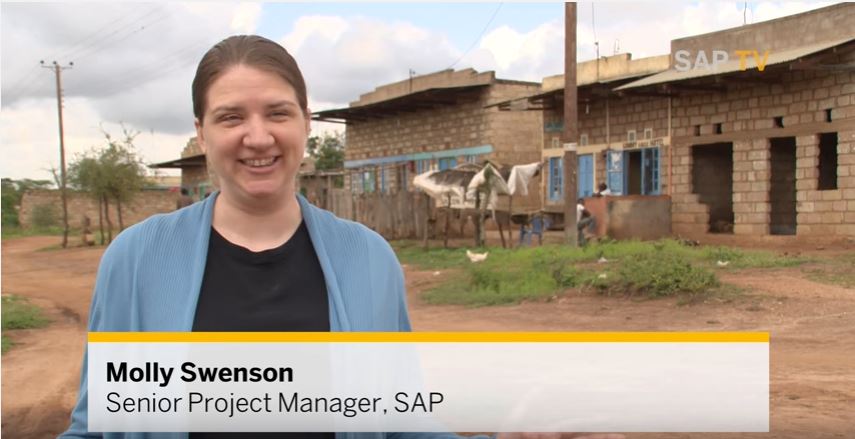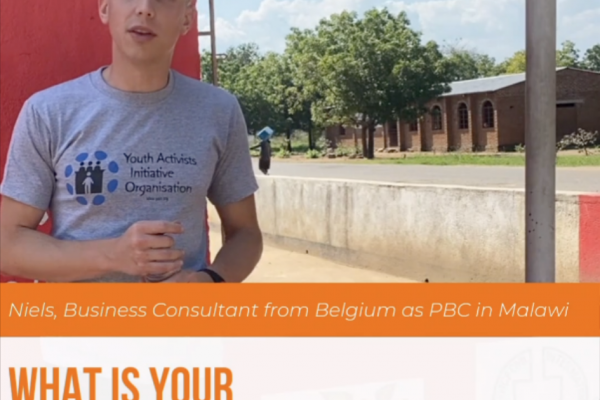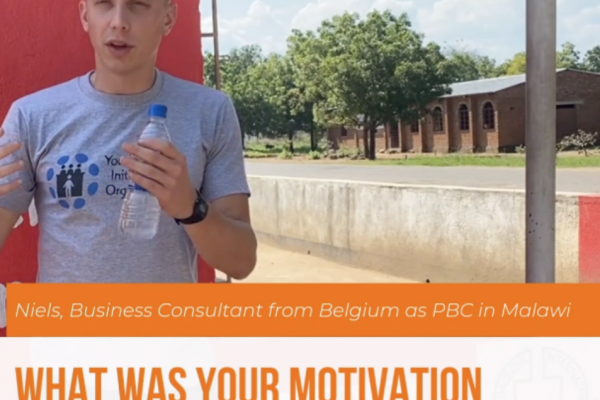The software group SAP wants to anchor the topic of pro bono more firmly in the European market and is involved in the 3rd Global Pro Bono Summit in Berlin. “With pro bono, we can achieve more than simply writing checks,” says Alexandra van der Ploeg, who is responsible for the company’s various pro bono programs in the Global Corporate Social Responsibility department.
Why did SAP launch the Social Sabbatical pro bono program three years ago?
We started very small with the social sabbatical in order to gain initial experience with pro bono. At the same time, the Group was considering how we could position ourselves more strategically in terms of corporate social responsibility. We wanted to create greater added value for society and scale back our purely philanthropic activities. This turnaround was not easy, and it needed the full support of the company’s management.
The pro bono programs at SAP
As part of the Social Sabbatical program, at least 100 SAP employees each year spend a month working pro bono in emerging and developing countries. Working in international, interdisciplinary teams of three, they support nonprofit organizations and social enterprises and solve their most pressing strategic challenges. SAP is currently sending employees to Colombia, South Africa, China, India, Ethiopia, Brazil, Turkey, and the Philippines. A local pro bono program, SAP ELI (Engaging for Local Impact), will launch this year in eight different locations around the world.
And there were?
Absolutely! Our belief was that we could do more with pro bono than simply write checks and let the money go to waste in the worst case scenario. This approach came from within the company. But it was clear to us that if we were to establish such a program across the Group, we would need support above all at management level. Fortunately, the concept can be explained convincingly and it works at many different levels.
Which ones?
It’s about the further development of leadership qualities, the skills of employees and, of course, strategic corporate development.
Which organizations do you help get off the ground?
We work primarily with social enterprises that have a functioning business model and want to grow. Be it geographically or in their portfolio. That’s where we can best help. If SAP is good at two things, it’s understanding business processes and applying appropriate technologies. And by helping these organizations, we create direct value for local people.
SAP conducts pro bono projects in emerging markets such as India, Brazil, South Africa, and the Philippines. Are you also doing this with potential markets in mind?
That’s part of our approach. But it’s mainly about deploying our employees in a completely foreign context. The cultural component plays a crucial role; in India or Brazil, business is often conducted quite differently. And these are precisely the moments when our employees need to take the lead, to say to themselves: I’m not going to be irritated by any imponderables, but trust in my skills and knowledge.
And that works so easily?
You have to be aware of your role in the team – and leave your ego out of it. Usually, many different nationalities come together in a team, including junior staff, seniors and even vice presidents. In addition, all SAP departments are represented, from Development to Controlling to Sales. Employees have to find their place in the group very quickly and deliver top performance – without regard to sensitivities or hierarchies. Ultimately, the goal is to deliver results for the organization that are sustainable and create added value.
Besides the unusual mix, what are the challenges on site?
An incredible number of things are happening simultaneously in a very short time. That’s where solution- and customer-oriented work is required. One of our teams came up with a motto right at the beginning: Shut up and listen! They took this to heart, both in their communication with customers and within the team. They learned how important it is to listen and not to immediately come up with ready-made solutions. After all, it often only becomes apparent on site that the challenges are a little different than described by the organization. Our people have to be incredibly flexible and adaptable because the situation can change abruptly. And these are things that they don’t actually have to deal with in their day-to-day work at SAP.
Employees have to find their way around the group very quickly and deliver top performance – without regard to sensitivities or hierarchies.
Alexandra van der Ploeg
The pro bono program is in high demand. Have you done a lot of internal advertising?
No, not at all. We were overrun with applications, even though we did a soft launch. It was mainly word-of-mouth. We now get almost 400 applications a year for 96 places. We had so much momentum after launching in 2012 that we scaled much faster than we planned. We currently send at least eight to ten teams to emerging markets at any one time.
Which employees are you targeting?
The so-called top talents of the Group. Worldwide, that means about five percent of SAP’s approximately 74,000 employees are eligible to participate.
There are also critics who say that companies can’t save the world.
I find that accusation a bit too simplistic. Politics and business both play an important role in social and economic development. However, there is often a lack of cooperation across sectoral boundaries, which is where a shoulder-to-shoulder approach would do good. Germany is a welfare state. The countries we go to, on the other hand, are far from it. That’s why the third sector plays an incredibly important role there. It’s not for nothing that social entrepreneurship has gained so much importance.
We definitely want to anchor the topic more firmly in the European market, motivate others. Alexandra van der Ploeg
Does SAP see itself as a pioneer in pro bono compared to other large companies?
We definitely want to anchor the topic more firmly in the European market and motivate others. That’s why we are involved in the 3rd Global Pro Bono Summit in Berlin. There are still too few companies internationally that have pro bono programs and talk about them.
In addition to the Social Sabbatical, SAP has now also launched a local pro bono program. Why?
There is a great willingness among employees to make a difference directly on site. In addition, our social sabbatical program is very costly – and at some point we will reach our limits when it comes to scaling. With the local program, we are transferring the experience gained from the Social Sabbatical to the local level; the pilot projects have gone over in Berlin and Palo Alto in California. Now we will gradually establish the program at all locations. This is primarily about capacity building, direct contact with customers and finding pragmatic solutions.
Interview: Maja Heinrich, BMW Foundation










1 Comment.
This site definitely has all the info I wanted about this subject and didn’t know who to ask.